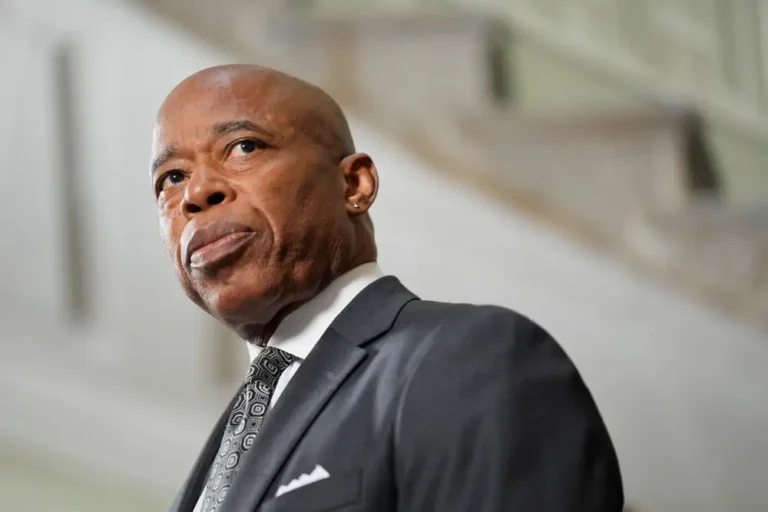Eric Adams has been a prominent figure in New York City politics for many years, culminating in his election as the city’s mayor in November 2021. Born on September 1, 1960, in Brooklyn, Adams has a long history of public service, first as a police officer and later as an influential politician. His journey from the streets of Brooklyn to the mayor’s office showcases his commitment to addressing the city’s most pressing issues through a blend of practical governance and progressive ideas.
Before entering politics, Eric Adams served in the New York City Police Department for 22 years. Rising to the rank of captain, he was known not only for his dedication to law enforcement but also for his advocacy of police reform. During his time with the NYPD, Adams became outspoken against police brutality and worked to build better relationships between the police and the communities they serve. He also founded the Guardian Angels, a volunteer organization focused on crime prevention and community safety, which further reflects his long-standing commitment to public safety.
Adams’s political career began after retiring from the police force. He was elected as Brooklyn Borough President in 2013, a role he held until 2021. As borough president, he prioritized issues such as affordable housing, education, and public safety, helping to shape policy in one of the city’s most populous boroughs. His tenure was marked by efforts to bring economic development and improved services to Brooklyn residents, laying a foundation for his later run for mayor.
In the 2021 mayoral race, Adams campaigned on a platform centered around public safety, economic recovery, and addressing homelessness. He positioned himself as a moderate Democrat who could balance law and order with the need for reform. His experience as a former police officer gave him credibility on crime issues, while his advocacy for public health and housing demonstrated a broader vision for the city. Adams also emphasized a “public health approach” to reduce gun violence, seeking to treat the issue as a societal problem requiring community-based solutions.
Despite facing corruption charges during his time in office—charges that were later dropped by the Justice Department—Adams maintained his focus on governance and reform. These legal challenges did not prevent him from running for re-election. Instead, he chose to skip the Democratic primary and run as an independent candidate, reflecting both the complexities of New York City politics and his determination to continue serving as mayor.
Adams’s approach to leadership combines pragmatism with a desire to unite the city’s diverse population. He has been described as a hands-on leader who listens to residents and works to address their concerns. His policies reflect an effort to tackle economic inequality, improve public services, and enhance the quality of life for all New Yorkers. One notable aspect of his personal life is his advocacy for healthy living, including his efforts to raise awareness about diabetes, a condition he has battled personally.
As mayor, Adams faces many challenges, including managing the city’s budget, addressing the ongoing housing crisis, and improving public transit. His ability to work with a City Council divided between moderates and progressives will be critical in achieving his goals. Yet, his long career in public service, his roots in Brooklyn, and his experience in law enforcement provide him with a unique perspective on the city’s needs.
Eric Adams represents a new chapter in New York City’s political landscape. His blend of experience, advocacy, and moderate politics appeals to a broad spectrum of voters who seek stability and change. Whether dealing with public safety, economic recovery, or health issues, Adams’s leadership style reflects a commitment to practical solutions and community engagement. His journey from police captain to mayor highlights the evolving nature of leadership in one of the world’s most dynamic cities.







